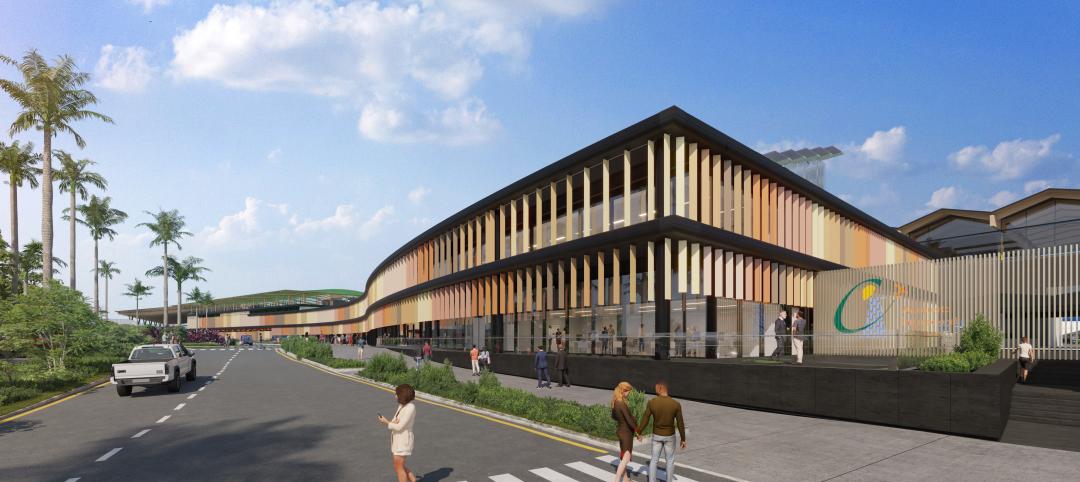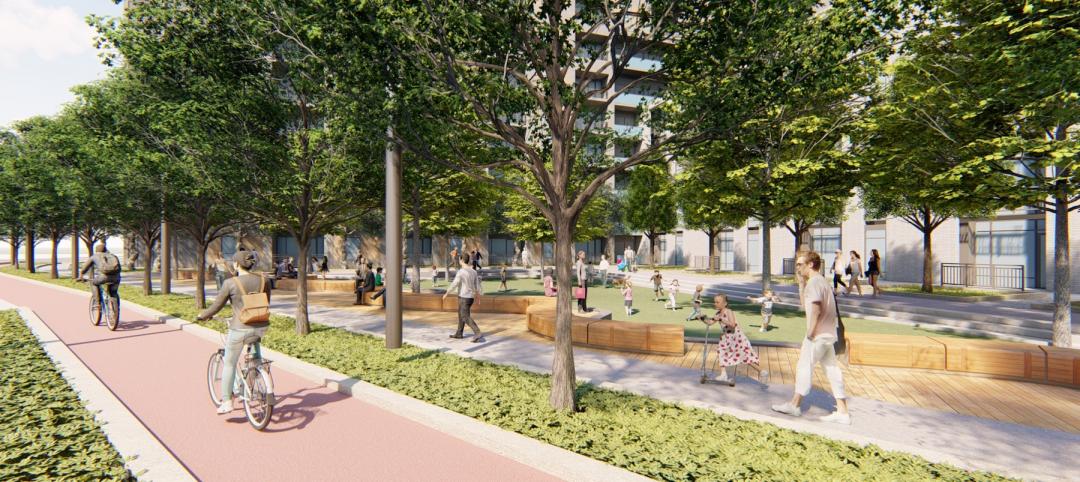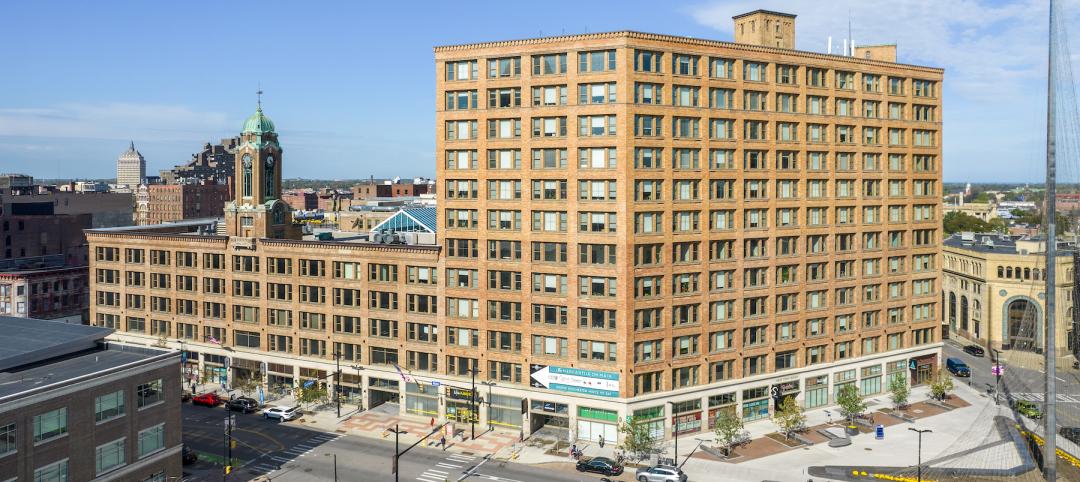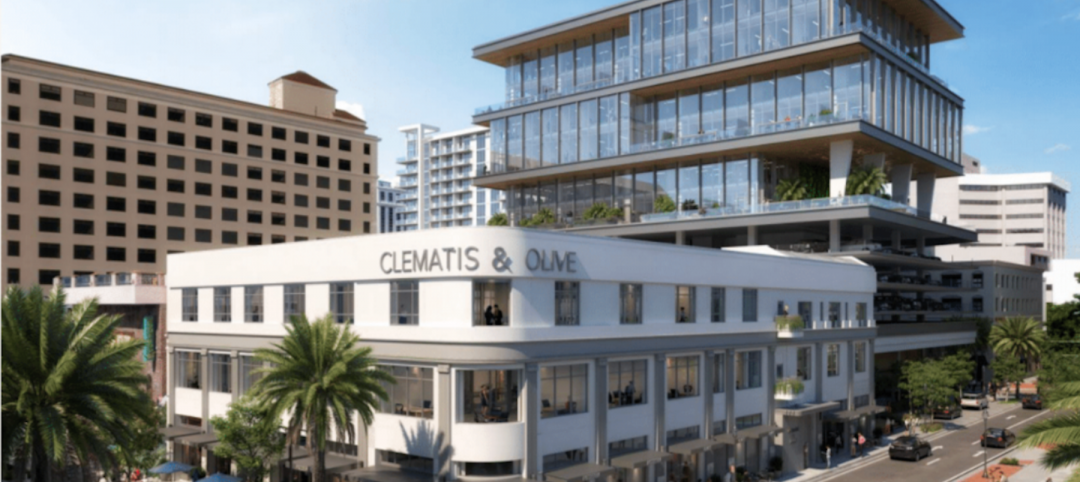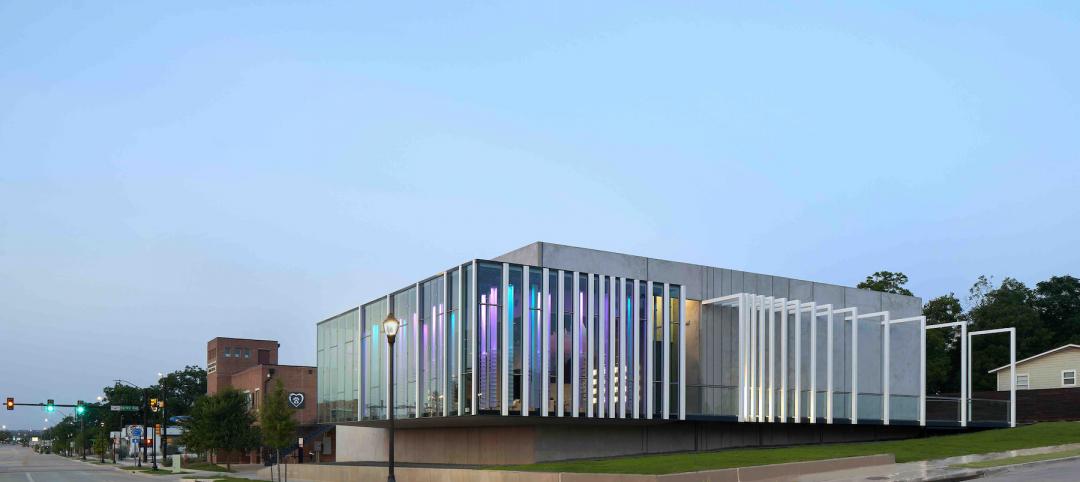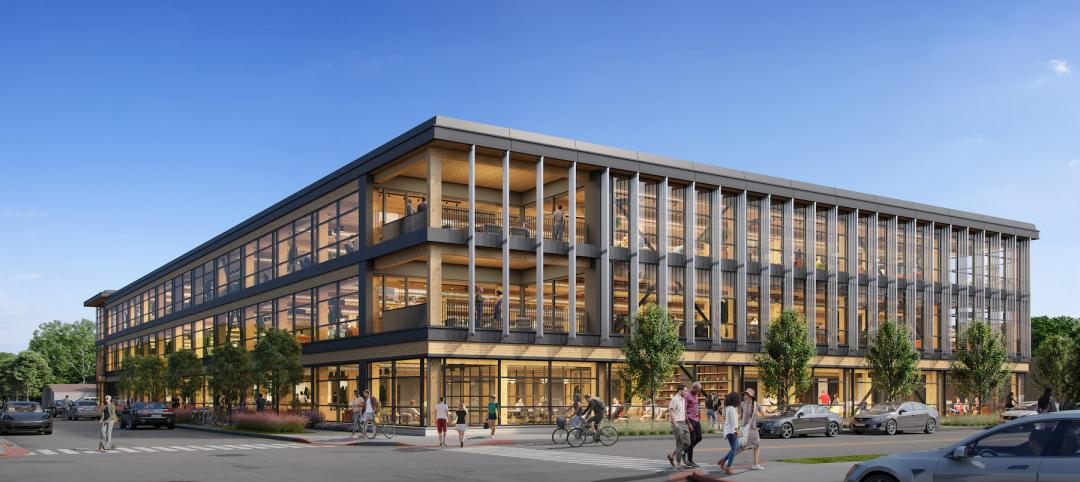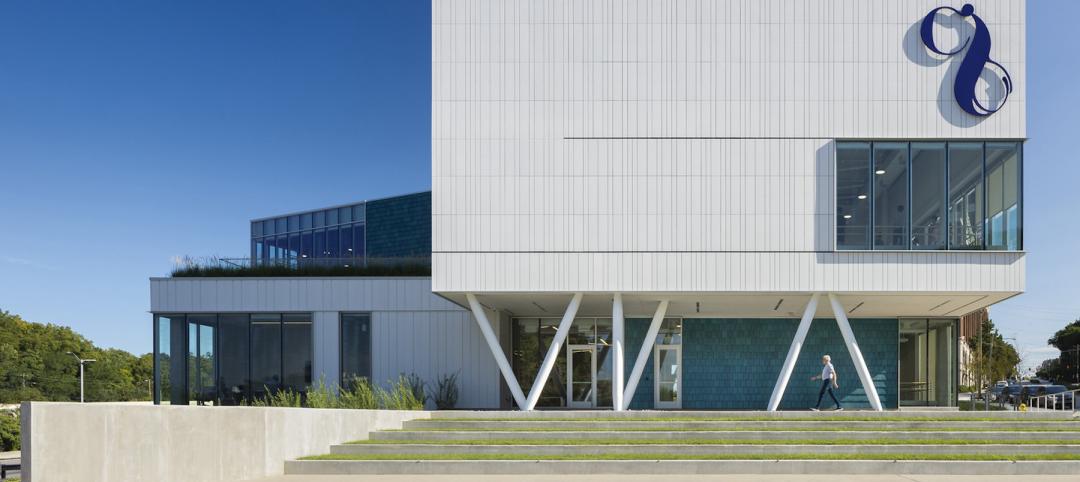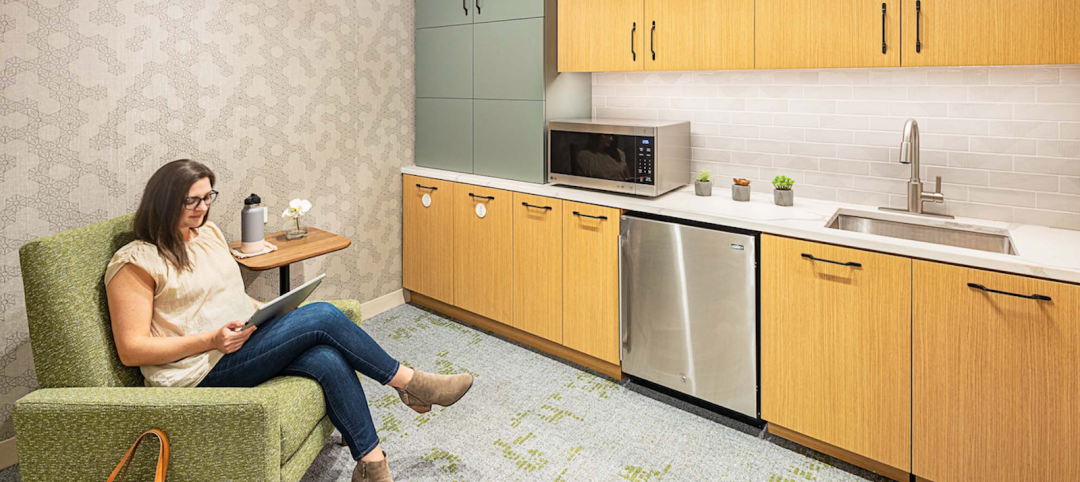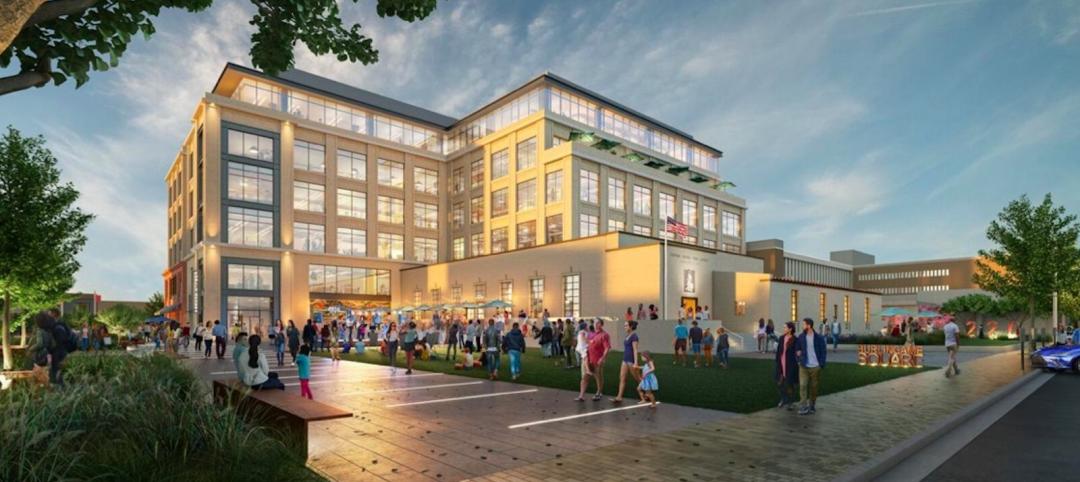In the $90 billion U.S. office construction sector, Class A and Class A+ properties are the darlings of every major metro market. Owners and developers of these amenity-rich, high-performance buildings are competing to lure top-notch companies willing to pay the most lucrative lease rates—and to keep them there long-term.
There’s certainly plenty of money to be made in building and rehabbing Class A office buildings. But what about their less-flashy counterparts, Class B and Class C properties?
A new Urban Land Institute report, researched in partnership with the Rocky Mountain Institute and the Building Owners and Managers Association (BOMA), suggests that there is significant “hidden value” waiting to be unlocked by owners of Class B/C properties—and plenty of work for AEC firms that cater to these segments of the office market.
For myriad reasons, these properties are woefully outdated and in serious need of a tune-up to meet baseline energy efficiency standards. The ULI report found that even the simplest of energy efficiency measures—low- and no-cost tactics such as upgrading general office illumination to LED fixtures, optimizing HVAC schedules and setpoints, performing routine preventative maintenance, and engaging tenants in occupant behavior measures—could net an immediate 15% savings in energy costs.
Larger capital investments—such as improvements to the building envelope and roof system, or installation of high-efficiency building systems, sensors/controls, or solar panels—could slash energy use by 35% or more, with paybacks in the three-year range. “That can reduce a property’s operating expenses by $0.26 to $0.61 per square foot, increase net operating income by 1.9% to 4.3%, and boost property value by approximately $4 to $8 per square foot,” said the authors.
Why haven’t more Class B/C property owners taken steps to improve the energy performance of their buildings? The report pinpoints three primary reasons: limited working capital to pay for project costs, inadequate staff capacity to implement these measures, and a lack of priority versus other business activities.
Furthermore, by successfully instituting a green lease program, owners can recoup a sizable portion of the initial investment, which would further improve the financial outcomes for the property.
If all of this is so elementary, as the report outlines, why haven’t more Class B/C property owners taken steps to improve the energy performance of their buildings? The report pinpoints three primary reasons: limited working capital to pay for project costs, inadequate staff capacity to implement these measures, and a lack of priority versus other business activities.
“Staff working at Class B/C buildings wear multiple hats. Rarely do they have dedicated third-party management or building engineering staff with time to focus on identifying, championing, and implementing energy efficiency efforts,” said the authors.
The report offers a roadmap for getting started.
For a free PDF download of the ULI report, “Unlocking Hidden Value in Class B/C Office Buildings,” visit BDCnetwork.com/ClassBC.
Related Stories
Airports | Apr 4, 2022
Dominican Republic airport expansion will add mixed-use features
The recently revealed design concept for the expansion of Santiago International Airport in the Dominican Republic includes a transformation of the current building into a mixed-use space that features an office park, business center, and hotel.
Codes and Standards | Mar 23, 2022
High office vacancies have cities rethinking downtown zoning
As record-high office vacancies persist in U.S. urban areas, cities are rethinking zoning policy.
Projects | Mar 22, 2022
Fast-growing Austin adds a $3 billion community
The nation’s fastest-growing large metro area is getting even bigger, with the addition of a $3 billion, 66-acre community.
Projects | Mar 18, 2022
Former department store transformed into 1 million sf mixed-use complex
Sibley Square, a giant mixed-use complex project that transformed a nearly derelict former department store was recently completed in Rochester, N.Y.
Projects | Mar 17, 2022
Plans unveiled for ‘Wall Street South’ mixed-use office block in West Palm Beach
Brand Atlantic Real Estate Partners, Wheelock Street Capital, and B+H Architects released design plans for a new mixed-use office block in West Palm Beach called Banyan & Olive.
Projects | Mar 10, 2022
Optometrist office takes new approach to ‘doc-in-a-box’ design
In recent decades, franchises have taken over the optometry services and optical sales market. This trend has spawned a commodity-type approach to design of office and retail sales space.
Mass Timber | Mar 8, 2022
Heavy timber office and boutique residential building breaks ground in Austin
T3 Eastside, a heavy timber office and boutique residential building, recently broke ground in Austin, Texas.
Performing Arts Centers | Mar 8, 2022
Cincinnati Ballet’s new center embodies the idea that dance is for everyone
Cincinnati Ballet had become a victim of its own success, according to company president and CEO Scott Altman. “We were bursting at the seams in our old building. We had simply outgrown the facility,” Altman told the Cincinnati Enquirer.
Projects | Mar 7, 2022
An Atlanta office promotes employee well-being
For its new Atlanta office, New Relic, a California-based technology company that develops cloud-based software, wanted to keep employee health and wellness at the fore. It also wanted the workspace design to bolster productivity as well as employee engagement and retention.
Projects | Mar 3, 2022
Move, lift, restore: Repurposing a former post office near San Francisco
In mid-February, a construction crew began lifting a 1940s post office building located in Burlingame, Calif., on the San Francisco Peninsula.



